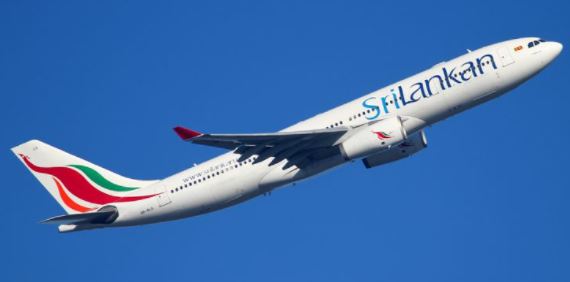SRI LANKA NEEDS TO PRIVATISE SRILANKAN AIRLINES
Source: NewsIn.Asia - May 24, 2022
The debt-ridden state-owned airline, which loses LKR 99 million a day, is a burden that the country can no longer afford.
Colombo, May 24 (AdaDerana) – SriLankan Airlines is one of the four largest loss making state-owned enterprises (SOEs) in the country. The financial performance of State-Owned Enterprises (SOEs) has placed a heavy burden on public finances for decades. Therefore reforming SOEs such as SriLankan Airlines has been long overdue.
At a time when SriLanka has announced a sovereign debt default, and when the government has insufficient revenues to cover the salaries of state-sector workers, divesting such an unproductive enterprise like SriLankan Airlines should receive urgent attention.
The national carrier has racked up approximately Rs. 372 billion in losses (as of July 2021) since control was taken from Emirates in 2008. For the year ending in March 2021 alone, SriLankan Airlines reported losses of Rs. 45.2 billion. The airline has, on numerous occasions, required treasury guaranteed loans to stay afloat, and has amassed over Rs. 53.6 billion in guarantees as of August 2021. Many of its loans are USD dollars – an even more unsustainable burden to the existing sovereign debt crisis, even as the country is facing a dire shortage of all foriegn currency reserves for essential imports. Sri Lankans of all walks of life ultimately have had to bear this burden and these massive losses have crowded out other more beneficial spending such as on social welfare.
The Advocata Institute welcomes Prime Minister’s recent statement that Sri Lankan Airlines should be privatised. Given the poor financial position of SriLankan Airlines and the debt accumulated, it is likely that the airline will have to be sold for a nominal sum.
The benefit of privatising would mainly be from the avoidance of future losses. This is a better alternative than continuing to burden the country’s banking sector which is already under severe stress. SriLankan received over LKR 194 billion in public guaranteed debt from 2017-21, of which over LKR 60 billion was received in 2021 alone; it is the recipient of the sixth largest amount of public-guaranteed debt. “We need to eliminate this massive hole in our budget, and we need to do it now,” said Dr Malathy Knight, an economist who has done extensive work on state enterprise reform. “Sri Lankan Airlines must come off the books, and the structuring and sequencing of the sale along with the bidding process must be aligned towards this goal,” she went on to say.
The move will also act as a confidence boosting measure to investors, multilateral lenders and bond holders that Sri Lanka is serious about economic reforms. Such hard reforms are the only means of making a recovery from the dire economic crisis that is a daily reality in Sri Lanka.
Sri Lanka would not be alone in taking such a pragmatic step to improve government finances. Air India, the Indian national carrier, followed a workable privatisation strategy. Air India was sold for $400 million plus the assumption of a portion of the existing debts ($2 billion out of a total of $8 billion). A similar agreement carried out by an independent and open tender process will bring in maximum return to Sri Lanka. Going forward, the government needs to adopt a comprehensive reform programme that will set the stage for structural reforms that can drive the country towards an economic recovery. Privatising SriLankan Airlines can be the starting point.
To prevent any further deterioration to the economy, the Advocata Institute calls upon the government to immediately start on a credible program of reform in order to prevent further hardship on the people of Sri Lanka.
Key Points
- Privatising Sri Lankan Airlines is a necessary immediate move that signals the country is serious about fiscal reform.
- SriLankan Airlines has accumulated approximately Rs. 372 billion in losses.
- When the Nation is experiencing power cuts and shortages of fuel the continued financing of Sri Lankan Airlines aggravates the hardships faced by the citizens of Sri Lanka.
- An independent and open bidding process should be used to carry out the privatisation.
- There is an immediate need for a common program of reforms aimed at macroeconomic stabilisation.





